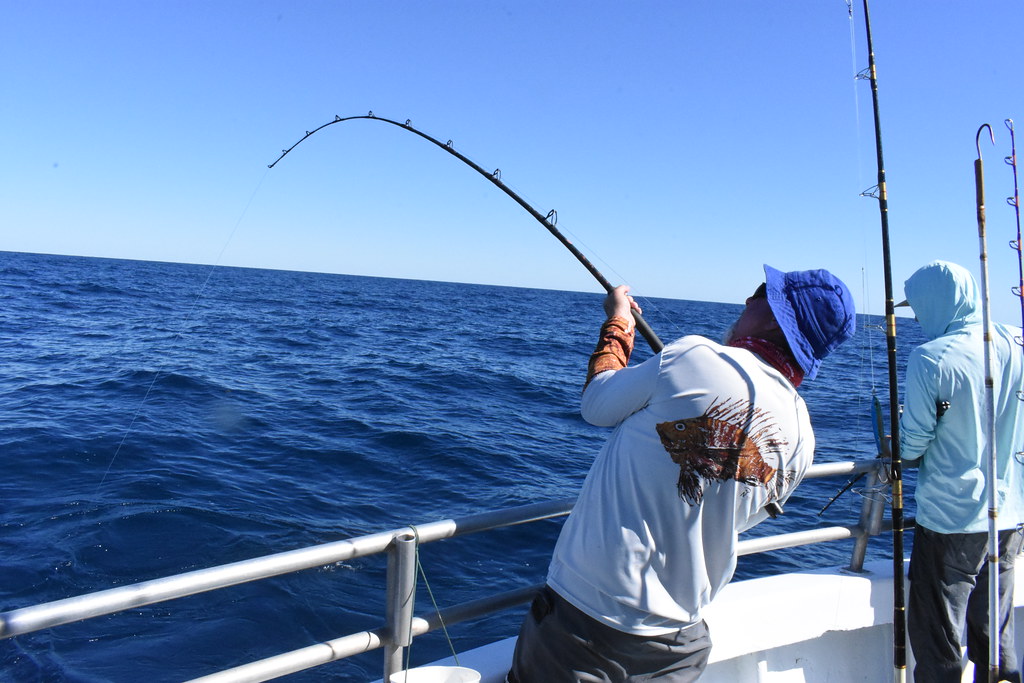Fishing is a sport that requires a unique blend of skill, patience, and strategy. While casting your line into the water and waiting for a bite may seem simple enough, experienced anglers know that success on the water often requires a more thoughtful approach. In this article, we’ll explore expert tips and techniques to help you fish smarter, not harder, and maximize your catch.
Understanding Fish Behavior
One of the keys to successful fishing is understanding the behavior of the fish you’re targeting. Different species of fish have distinct feeding habits, preferences, and behaviors. Take the time to research your target species and learn about their preferred habitats, feeding times, and movements. Understanding when and where fish are most likely to be active can help you plan your fishing trips more effectively and increase your chances of success on the water.
Researching Your Fishing Spots
Before you head out on your fishing adventure, take the time to research your chosen fishing spots. Use maps, charts, and online resources to identify potential hotspots such as underwater structures, drop-offs, and weed beds. Pay attention to factors such as water depth, current patterns, and seasonal changes that may affect fish behavior. Gathering information about your fishing spots in advance can help you plan your strategy and maximize your time on the water.
Using the Right Bait and Lures
Choosing the right bait or lure is crucial for enticing fish to bite. Different fish species have different feeding preferences, so it’s essential to use bait or lures that mimic their natural prey. Experiment with a variety of baits and lures to see what works best in different fishing conditions. Pay attention to factors such as water clarity, temperature, and depth when selecting your bait or lures. By using the right bait or lures, you can increase your chances of attracting fish and maximizing your catch.
Practicing Stealth and Patience
Fish are sensitive creatures that can easily be spooked by noise and movement. Practicing stealth and patience is essential for successful fishing. Approach your fishing spot quietly and avoid making unnecessary noise or sudden movements that could scare away fish. Use polarized sunglasses to reduce glare and improve visibility in the water. Discover Fishing Tips and Tricks
Be patient and observant, and take the time to study fish behavior and feeding patterns. Remember that fishing is a game of patience, and success often comes to those who are willing to wait for the right moment.
Timing Your Fishing Trips
Timing is everything when it comes to successful fishing. Pay attention to factors such as the time of day, weather conditions, and lunar phases, as these can all influence fish behavior and activity levels. Many species of fish are more active during certain times of the day, such as dawn and dusk, when light levels are lower and temperatures are cooler. Likewise, certain lunar phases, such as the full moon or new moon, can trigger feeding frenzies among some fish species. Plan your fishing trips accordingly to maximize your chances of success during peak feeding times.
Adapting to Changing Conditions
Flexibility is key to successful fishing, as conditions on the water can change rapidly. Be prepared to adapt your tactics and techniques based on the conditions you encounter. If your initial approach isn’t yielding results, don’t be afraid to try something different. This might mean switching to a different bait or lure, changing your retrieval speed, or targeting a different area of the water. By staying flexible and open-minded, you can increase your chances of success and maximize your catch, even in challenging conditions.
From Rookie to Pro: Building Your Big Fish Tackle Box
As you embark on your journey from rookie to pro angler, building your big fish tackle box becomes a crucial step in leveling up your game. While starting small with basic hooks and weights is essential, transitioning to more advanced lures and equipment can make a significant difference in the size and quantity of catches you reel in. One key strategy is diversifying your tackle box with a variety of baits that mimic different types of prey, giving you an edge in attracting elusive big fish.
Investing in quality gear like high-performance rods, reels, and lines can enhance your fishing experience at https://fishingforbig.com/and increase your chances of landing that trophy catch. Additionally, organizing your tackle box effectively by categorizing items based on size, type of lure, and fishing conditions can streamline your fishing process and help you quickly adapt to changing situations on the water.
Remember, building a diverse arsenal of tools and techniques will empower you to confidently navigate diverse fishing environments and eventually transform into a seasoned pro angler ready for any challenge that comes your way.
Practicing Conservation
As responsible anglers, it’s essential to practice conservation and ethical fishing practices. Follow catch-and-release guidelines whenever possible, and handle fish with care to minimize stress and injury. Respect fishing regulations and size limits to help maintain healthy fish populations for future generations to enjoy. Dispose of trash properly, and avoid disturbing sensitive habitats such as spawning grounds or nesting areas. By practicing conservation, you can help ensure the long-term sustainability of our fisheries and protect the natural world for future generations to enjoy.
Seeking Knowledge and Learning from Experience
Fishing is a lifelong learning process, and there’s always something new to discover. Take advantage of resources such as books, magazines, websites, and fishing forums to expand your knowledge and stay up-to-date on the latest techniques and trends. Seek advice and guidance from experienced anglers who can offer valuable insights and tips based on their own experiences. Likewise, don’t hesitate to share your own experiences and knowledge with others in the fishing community. Whether you’re teaching a friend how to tie a knot or sharing stories from your latest fishing trip, sharing knowledge and experiences helps strengthen the bonds of the fishing community and enriches the angling experience for everyone involved.
Conclusion
Fishing smarter, not harder, is all about understanding the fish, the water, and the techniques that bring them together. By understanding fish behavior, researching your fishing spots, using the right bait and lures, practicing stealth and patience, timing your fishing trips, adapting to changing conditions, practicing conservation, seeking knowledge, and learning from experience, you can increase your chances of success on the water and maximize your catch. So the next time you head out on a fishing trip, remember these expert tips and techniques to fish smarter and enjoy a more rewarding angling experience.









